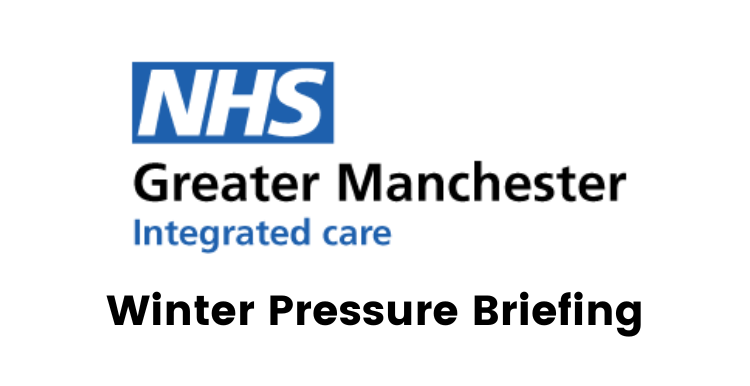NHS Winter Pressures: An In-Depth Look at Challenges and Solutions
As winter tightens its grip, the National Health Service (NHS) in the UK grapples with significant pressures. Each year, the colder months exacerbate existing challenges, stretching resources to their limits and impacting patient care. This blog explores the state of the NHS during winter, focusing on the root causes of long waiting times and potential solutions for improved healthcare delivery.
The Winter Strain on the NHS
Winter is particularly demanding for healthcare systems worldwide, and the NHS is no exception. Seasonal illnesses such as influenza, respiratory infections, and norovirus lead to a surge in hospital admissions. Additionally, icy conditions increase the number of accidents and injuries, further burdening emergency services.
The challenges, however, go beyond seasonal factors. Persistent staff shortages, aging infrastructure, and rising demand for services compound the difficulties faced during this critical time. In 2023 alone, the NHS saw record-high waiting lists, with over 7 million patients awaiting treatment.

Understanding Long Waiting Times
Root Causes:
-
Increased Demand:
-
The UK’s aging population requires more frequent and complex medical care.
-
Rising incidences of chronic illnesses such as diabetes and heart disease contribute to the growing patient load.
-
-
Staffing Shortages:
-
According to recent reports, the NHS faces a shortage of over 110,000 healthcare workers, including doctors and nurses.
-
Burnout and job dissatisfaction lead to high turnover rates, further exacerbating the problem.
-
-
Insufficient Funding:
-
Despite increased government spending, funding often fails to keep pace with rising demand.
-
Underfunded social care services push more patients into hospitals, as adequate community care is unavailable.
-
-
Outdated Infrastructure:
-
Many NHS facilities operate in buildings that are decades old, limiting capacity and efficiency.
-
Delayed maintenance and lack of modernization hamper service delivery.
-
-
COVID-19 Aftermath:
-
The pandemic’s legacy has left the NHS with a significant backlog of treatments and appointments.
-
Increased demand for mental health services further strains resources.
-
The Human Cost
For patients, long waiting times can lead to worsening health outcomes, increased anxiety, and in severe cases, life-threatening delays. For staff, the relentless pressure of managing high workloads with limited resources contributes to stress, burnout, and absenteeism. Together, these factors create a cycle that is difficult to break without systemic intervention.
Proposed Solutions for Improved Healthcare Delivery
While the challenges are daunting, there are actionable solutions that can alleviate NHS winter pressures and enhance healthcare delivery:
1. Strengthening Workforce Capacity
-
Recruitment and Retention:
-
Increase investment in recruitment campaigns, both domestically and internationally.
-
Offer competitive salaries and benefits to attract and retain skilled professionals.
-
-
Support for Staff Well-being:
-
Implement measures to address burnout, such as flexible working hours and mental health support.
-
Provide ongoing training and professional development opportunities.
-
2. Boosting Funding and Resource Allocation
-
Targeted Investment:
-
Allocate additional funding specifically for winter preparedness, including emergency care and hospital capacity.
-
Increase funding for primary care services to reduce the burden on hospitals.
-
-
Partnerships with Private Providers:
-
Collaborate with private healthcare providers to address urgent backlogs and free up NHS capacity.
-
3. Expanding Community and Social Care
-
Integrated Care Models:
-
Strengthen collaboration between the NHS and social care providers to ensure seamless patient transitions.
-
Invest in community-based care to reduce unnecessary hospital admissions.
-
-
Early Intervention Programs:
-
Focus on preventative care, such as vaccination campaigns and health education initiatives, to reduce the incidence of seasonal illnesses.
-
4. Leveraging Technology
-
Digital Health Solutions:
-
Expand the use of telemedicine to provide remote consultations, reducing the strain on physical facilities.
-
Utilize data analytics to predict patient surges and allocate resources more effectively.
-
-
Modernizing Infrastructure:
-
Upgrade hospital facilities with state-of-the-art equipment to enhance efficiency.
-
Implement electronic health records (EHR) systems to streamline patient care and reduce administrative burdens.
-
5. Engaging the Public
-
Health Awareness Campaigns:
-
Educate the public about when to use emergency services versus alternative care options, such as GP surgeries or pharmacies.
-
-
Promoting Self-Care:
-
Provide resources and information to help individuals manage minor ailments at home, easing pressure on healthcare providers.
-

-
Successful Case Studies
1. Scotland’s Winter Preparedness Plan
Scotland has implemented a comprehensive winter preparedness plan, including additional funding for NHS boards and increased staffing levels. Early interventions, such as expanding vaccination programs and bolstering out-of-hours services, have shown promising results in reducing hospital admissions.
2. Digital Innovations in Birmingham
In Birmingham, the use of telemedicine during peak winter months has significantly reduced waiting times for GP appointments. Patients can now access virtual consultations, enabling quicker diagnosis and treatment.
3. Community Care Hubs in Manchester
Manchester’s integrated care hubs provide a range of services under one roof, from GP appointments to social care support. This model has eased pressure on hospitals by addressing patients’ needs closer to home.
The Road Ahead
Addressing NHS winter pressures requires a multi-faceted approach combining immediate and long-term interventions. By strengthening workforce capacity, increasing funding, expanding community care, leveraging technology, and engaging the public, the NHS can better navigate the challenges of winter and beyond.
As the nation continues to rely on its cherished healthcare system, collective efforts from policymakers, healthcare professionals, and the public are essential to ensure its resilience and sustainability. The road ahead may be challenging, but with the right strategies in place, the NHS can emerge stronger and more capable of meeting the needs of future generations.











Top Comments You Can't Miss!